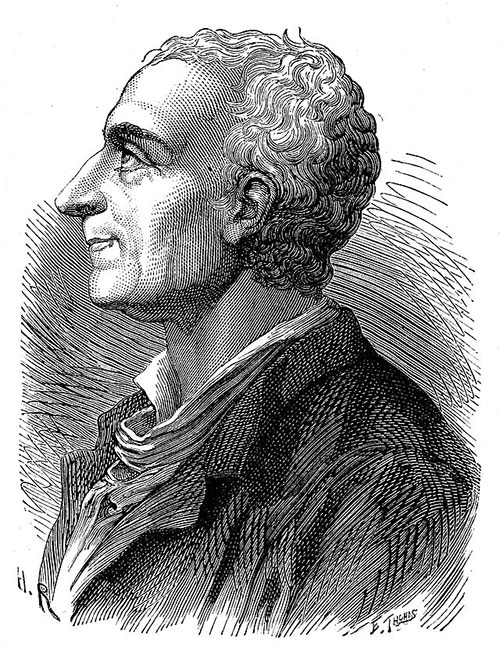The separation of powers
The principle of the separation of powers was important when the Norwegian Constitution was written in the spring of 1814. Power is still divided, though parliamentarianism has led to a shift in the balance between the three branches of the state.

Montesquieu portrayed by Émile Bayard: Wikimedia Commons.
Power in Norway is divided into three branches:
- the Storting – the legislative branch
- the Government – the executive branch
- the courts – the judicial branch
These three branches of the state have different powers and responsibilities.
The Storting – the Norwegian Parliament – is the legislative, budgetary and supervisory power. This means that the Storting makes and passes Norwegian laws; determines state revenues and allocates spending through the Fiscal Budget; and makes sure that the Government follows up the decisions made in the Storting.
Read more about how the Storting makes and passes laws.
Read more about how the Storting considers and passes the Fiscal Budget.
Read more about how the Storting controls the work of the Government.
The Government is the executive power. This means that it is the Government’s duty to carry out the decisions made in the Storting. The Government is further responsible for initiating policies and putting forward matters to the Storting. Members of Parliament (MPs) may also table proposals, so-called Private Member Motions and Private Member’s Bills.
The courts are the judicial power. The decisions of the courts are based on the legislation that the Storting adopts. The King in Council has the right to pardon those who have been convicted of crimes, but otherwise neither the Storting nor the Government is allowed to interfere in court rulings. The courts also have the power to determine whether the legislation that is passed in the Storting is in accordance with the Norwegian Constitution.
Montesquieu’s principles
The separation of powers between the Storting, the Government and the courts is a key principle in the Norwegian Constitution of 1814. An important question for 18th Century thinkers was how a nation’s citizens could be protected from the abuse of power. In his book The Spirit of the Laws (1748), the French philosopher Montesquieu set out a solution: introduce a system of checks and balances in which “power shall stop power”. His principles can be summarized like this:
- Legislative/budgetary, executive and judicial powers shall reside in parliament, the king/government and the courts respectively.
- The three branches of the state shall be separate institutions, and shall not intervene in each other’s work.
- Power shall be balanced, so that each institution acts as a counterweight to the other two.
Even though the Constitution of 1814 provided for the separation of powers, a disproportionate amount was still vested in the King. The King personally chose his Government, and the Storting had no influence over its composition. Moreover, the King had the power of veto over all proposed legislation. In fact, the only instrument of power that the Storting could wield over the King and his Government was the Court of Impeachment. The job of this court is to rule in cases brought against members of the Government, the Storting or the Supreme Court who are deemed to have committed an offence while carrying out their constitutional duties.
Read more about the Norwegian Constitution.
Changing the balance of power
A charge of impeachment was brought against the Selmer Government in 1883-84. It was found guilty of refusing to implement a parliamentary resolution about the Government’s duty to answer questions in the Storting. This led to the first breakthrough of parliamentarianism in Norway, and with this, a shift in the balance of power. The Storting’s powers increased at the expense of the King. The system of parliamentarianism means that a Government is formed on the basis of the composition of the Storting, and that its power to govern is dependent on the confidence of the Storting.
The breakthrough of parliamentarianism can be seen as an important step in the creation of modern Norwegian democracy. Even though parliamentarianism weakened the principle of the separation of powers, the system continues to apply today. The three branches of the state still have different powers and responsibilities, and the courts remain independent.
Last updated: 20.05.2021 14:09